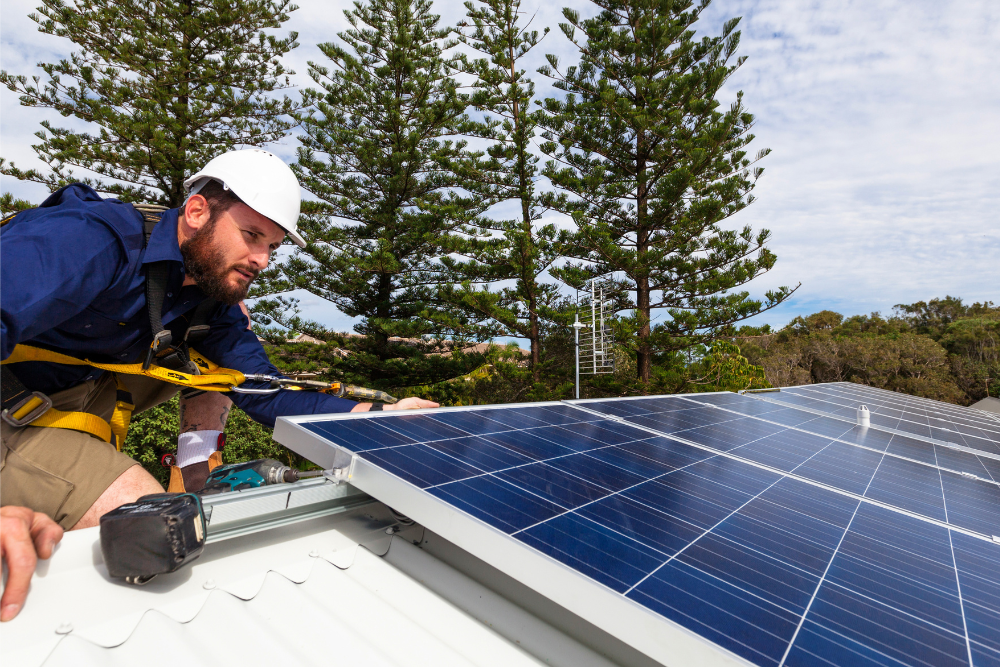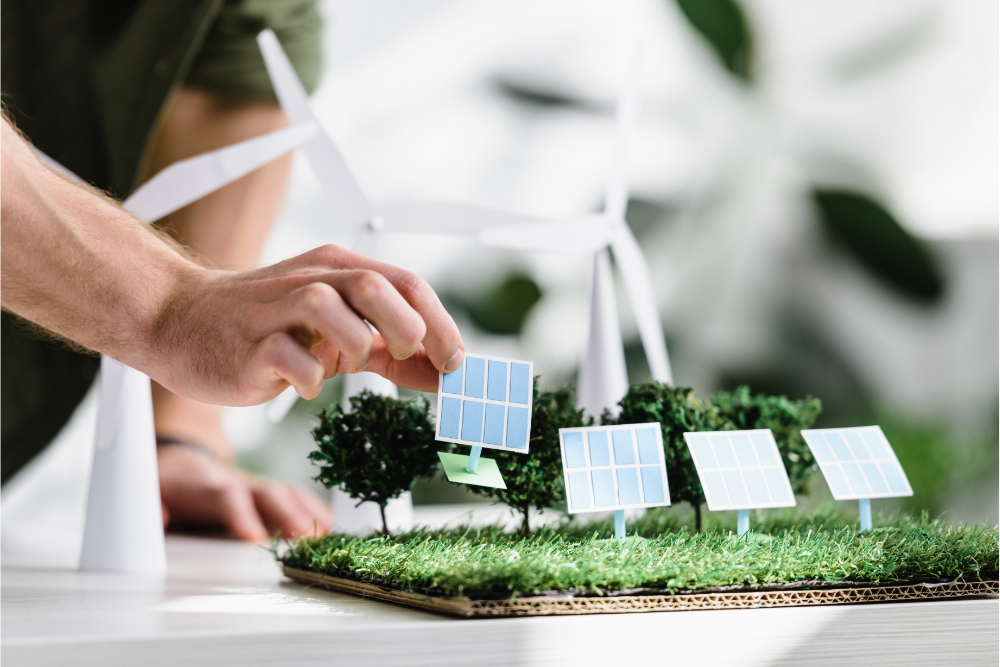In the past few years, the adoption of solar energy has become increasingly popular across the United States, and Arkansas is no exception. With the state’s abundance of sunny days and environmental awareness being more top-of-mind than ever before, solar power is an attractive option for homeowners in the Natural State.
If you’re an Arkansas homeowner who has been considering making the switch to solar energy, keep reading as we’ll provide you with all the information you need to make an informed decision about going solar in this article.
Why Solar in Arkansas?
Arkansas is known for its natural beauty and warm climate, and it offers an ideal setting for harnessing the power of the sun. Below are some of the most compelling reasons as to why homeowners should consider installing solar panels in Arkansas:
Solar Potential
Arkansas has an average of 217 sunny days each year. This makes it a prime location for solar panel installation, as the abundant sunlight is a valuable resource that can be converted into clean, renewable energy.
Environmental Benefits
The adoption of solar energy in Arkansas contributes significantly to reducing greenhouse gas emissions and mitigating climate change. By reducing your reliance on fossil fuels, you help to preserve the state’s beautiful natural landscapes and combat air pollution.
Economic Incentives
There are several financial Arkansas solar incentives to encourage residential and commercial adoption, as well. These incentives include federal tax credits, federal rebates, and net metering, all of which can significantly offset the initial cost of installing a solar system.
Understanding Solar Panels and How They Work
Before we dive into the specifics of solar panels in Arkansas, it’s crucial to understand the basics of solar panels and how they generate electricity.
Solar panels in Arkansas work by harnessing the power of sunlight to generate electricity. They consist of photovoltaic (PV) cells made from semiconductor materials, such as silicon. When sunlight, which is composed of photons, strikes the surface of these cells, they release electrons to create a flow of electricity. Solar inverters are also an essential part of any solar system, as they convert the direct current electricity generated by the PV cells into alternating current, which is then used to power your home’s appliance and devices.
Evaluating Your Home for Solar
While installing solar panels in Arkansas is enticing for many homeowners, not every home is equally suitable for solar panel installation. It’s important to assess your property’s potential for harnessing solar energy effectively before moving forward with a solar system. Here are some key factors to consider:
1. Roof Condition and Orientation
The condition of your property’s roof is crucial because the average lifespan of solar panels is 25-30 years. So your roof should be in good shape and have enough structural integrity to support the panels. The orientation of your roof and its angle relative to the sun’s path also has an impact on the system’s efficiency.
2. Shading and Solar Access
Be sure to assess the amount of shading on your property if you’re considering solar panels in Arkansas, as it can significantly affect solar energy production. Trees, buildings, or other obstructions that cast shadows onto your panels can reduce their efficiency, so make sure that your panels will have access to direct sunlight throughout the day.
3. Tools and Professionals
There are online tools and solar energy professionals who can help you determine your property’s solar potential. Solar calculators can estimate energy production based on your location, roof orientation, and shading, and consulting with a professional who specializes in solar panels in Arkansas can provide a more accurate assessment.
Solar Incentives and Financing in Arkansas
Various financial incentives and financing options are available to make solar energy more accessible to Arkansas homeowners. While the state offers limited solar rebates, federal incentives like the Federal Solar Tax Credit (ITC) and local programs such as Property Assessed Clean Energy (PACE), Financing and the Rural Energy for America Program (REAP) can help in reducing upfront costs. Net metering also encourages solar adoption by allowing homeowners and businesses to earn credits for excess energy generation.
Arkansas Solar Permitting and Interconnection
Before you can start harnessing solar energy for your home, you’ll first need to navigate the permitting and interconnection process. Here’s what you need to know:
Permitting Process
The permitting process involves obtaining the necessary approvals and permits from your local government or jurisdiction to ensure that your solar system complies with safety and building codes. The requirements vary depending on your location, so be sure to consult with local authorities or the company that you’ve chosen to install your solar panels in Arkansas.
Interconnection with Utilities
Interconnection is the process of connecting your solar system to the utility grid. This allows you to exchange electricity with the grid when needed, so it’s important to work with your utility company to ensure a seamless interconnection process.
Local Regulations and Homeowners Associations
Be aware of any local regulations or homeowners association rules that could affect your ability to install solar panels on your property, as some neighborhoods might have restrictions on the appearance of solar panels or their placement on roofs.
Choosing the Right Solar Installation Company
 A crucial step in your solar journey is selecting the right installation company for your solar panels. In Arkansas, there are some key considerations to keep in mind when looking for an installer.
A crucial step in your solar journey is selecting the right installation company for your solar panels. In Arkansas, there are some key considerations to keep in mind when looking for an installer.
- Reputation and Experience: Always be sure to research a company’s reputation and experience in the industry. Look for customer reviews and testimonials to get a better understanding of their track record.
- Certifications and Licensing: Make sure that the company and its installers have the necessary certifications and licenses to install your solar panels in Arkansas, as this will guarantee that they meet industry standards.
- References: Ask for references from past customers. Talking to homeowners who have worked with the company can provide valuable insights into their performance and overall customer service.
- Quotes and Proposals: Obtain quotes and proposals from multiple companies who install solar panels in Arkansas. Compare costs, warranties, and equipment so you have the necessary information to make an informed decision.
Maintenance and Longevity of Solar Systems in Arkansas
In order to maximize the longevity and performance of your solar panels in Arkansas, you should consider these tips for maintenance.
General Maintenance
One of the many great things about solar panels in Arkansas is they are mostly low maintenance. Periodic cleanings to remove dirt and debris are necessary to improve their efficiency. Routine inspections are also important to prevent operational issues and outages.
Lifespan and Performance Degradation
Solar panels have a longevity of 25-30 years. Modern panels have a relatively slow degradation rate compared to older models. Routine monitoring and solar panel maintenance are beneficial to help you identify and avoid issues.
Warranty Considerations
Solar panel warranties will typically cover both equipment and performance. Always be sure to understand the terms and duration of your system’s warranty, as this can provide you peace of mind should unexpected issues with the system arise.
The Environmental Impact and Benefits
Switching to solar panels in Arkansas offers many environmental benefits that extend beyond your utility bill.
Reduction in Carbon Footprint
Solar power significantly reduces carbon emissions, which helps to combat climate change and improve air quality in Arkansas.
Contribution to Clean Energy
By generating clean, renewable energy, you contribute to a more sustainable energy mix and reduce the state’s dependence on fossil fuels.
Benefits to Natural Habitats and Ecosystems
Solar installations are often designed to minimize their impact on local ecosystems, and they can even create new habitats for wildlife.
Conclusion
Switching to solar panels in Arkansas is a viable and sustainable option for homeowners who are looking to reduce their carbon footprint, lower their energy costs, and invest in a greener future. With the state’s abundant sunshine and the range of Arkansas solar incentives, now is the perfect time to evaluate your property’s solar potential.
Take action today by researching local solar providers, assessing your home’s suitability for solar panels, and exploring financing options. By installing solar panels in Arkansas, you not only benefit yourself but also contribute to a cleaner, more sustainable state for generations to come.

